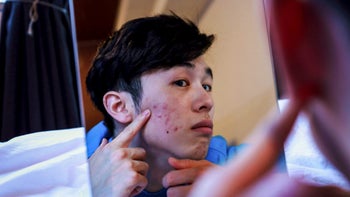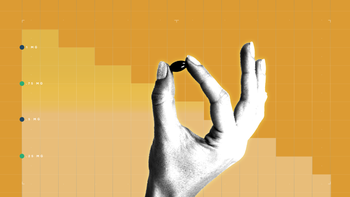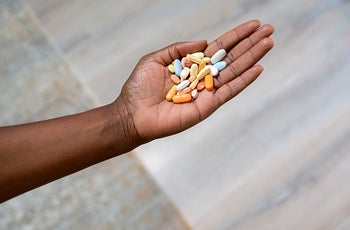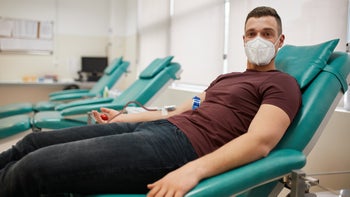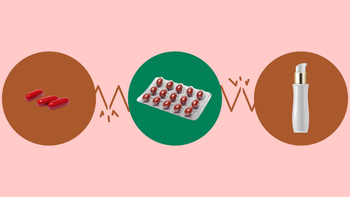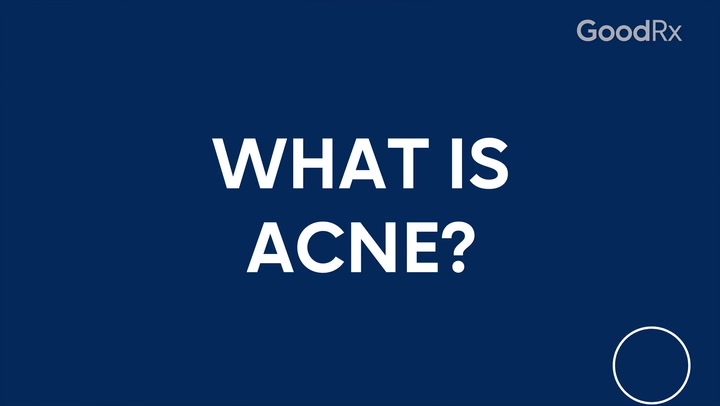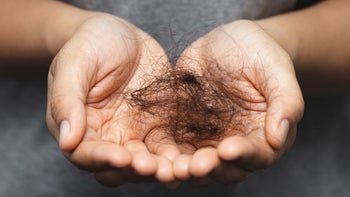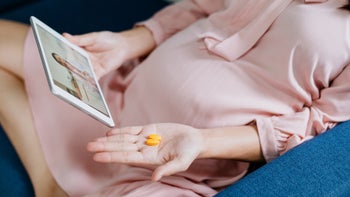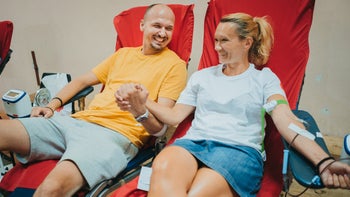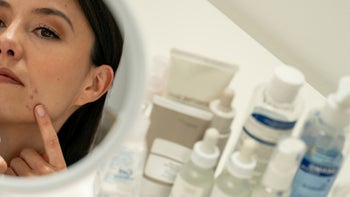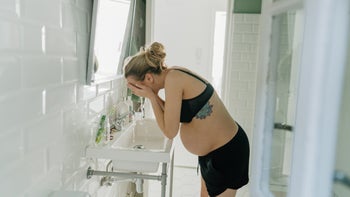
Alcohol and Accutane (Isotretinoin): Why This Combination Is a Bad Idea for Your Liver
Key takeaways:
Accutane (isotretinoin) treats severe acne in adults and children over the age of 12. Drinking alcohol with Accutane isn’t recommended because it can increase your risk of side effects.
Combining alcohol and Accutane raises your risk of liver damage and high cholesterol. It can also make side effects — such as dry lips and skin, nausea, and mood changes — more likely. Alcohol can also worsen acne.
Accutane stays in the body for over a week after your last dose. So it’s best to ask your healthcare team when it’s safe to start drinking once your treatment course is finished. Keep in mind that limiting alcohol can help keep your skin clear and protect your overall health.
Access savings on related medications

Alcohol is often present at social events, whether it’s a celebration, a sports game, or a casual dinner with friends. So it’s easy to forget that alcohol can interact with your medications. Sometimes, the interaction is mild. But in some cases, the interaction can be harmful — such as with alcohol and Accutane (isotretinoin).
If you’re wondering if it’s safe to have a drink while you’re taking Accutane, we have you covered. Let’s review why this combination isn’t recommended and how to protect your health while taking Accutane.
Brand-name Accutane is no longer available, but we’ll use this name throughout the article since it’s well-known. This information applies to generic isotretinoin as well as other oral brand-name and generic medications that contain isotretinoin, such as Claravis and Amnesteem.
Save over 40% on Qsymia with GoodRx
Discover the once daily Qsymia for weight management. Qsymia is for adults and children 12-17 in combination with a healthy diet and regular exercise.

Can you drink alcohol if you’re taking Accutane?
No, it’s best to avoid alcohol in general if you’re taking Accutane. Alcohol and Accutane can both cause liver damage and raise the levels of triglycerides (fats) in your bloodstream. The combination can also make some other Accutane side effects more likely. And on top of that, drinking alcohol can make your acne worse.
If you’re concerned about your ability to avoid alcohol while you’re taking Accutane, let your prescriber know. They can suggest a safer treatment option for your acne. And they can provide resources to help you cut back or quit drinking, too.
If you or someone you know struggles with substance use, help is available. Call SAMHSA’s National Helpline at 1-800-662-4357 to learn about resources in your area.
Is having 1 or 2 drinks OK?
An occasional alcoholic drink or 2 may not seem like much of a risk. But in many cases, people who consume alcohol aren't allowed to participate in clinical studies on Accutane. So we don’t know if any amount of alcohol is safe while you’re taking it.
The safety of a drink or 2 can also vary based on your individual situation. For example, other medications and health conditions might make drinking alcohol even riskier. So it’s best to talk with your prescriber to see if an occasional drink might be OK for you while taking Accutane.
What are the risks of drinking alcohol with Accutane?
As mentioned, alcohol can interact with Accutane in a few different ways. The risks of combining alcohol and Accutane include liver problems, high cholesterol, and a higher risk of other side effects.
Liver problems
Accutane can increase your liver enzymes. In most cases, this isn’t a serious issue on its own. But when you add alcohol to the mix, the risk for serious liver problems goes up. That’s because alcohol also raises liver enzymes. The risk is greater with large amounts or frequent use of alcohol. But any amount of alcohol can be an issue.
Alcohol may also cause your body to break down Accutane faster. So your Accutane levels may be lower than intended, and the medication may not work as well to treat your acne.
High cholesterol
Accutane can raise the amount of fats in your blood (cholesterol and triglycerides) while you’re taking it. Alcohol can raise your cholesterol and triglyceride levels, too. This increases the risk of heart problems, such as a heart attack or stroke.
Your prescriber will likely monitor your cholesterol levels during treatment. And you may have to stop taking Accutane if your levels go too high. Avoiding alcohol can help prevent this from happening.
Increased risk for other side effects
Accutane side effects include dry lips and skin, stomach problems, and mood changes. Alcohol can also cause dry mouth along with nausea, stomach pain, and mood changes. So it can worsen some Accutane side effects or increase the chance you’ll experience them if they’re combined.
What’s more, alcohol can worsen your acne. So if you want to get the most out of your Accutane treatment, it makes sense to avoid alcohol.
When can you start drinking after you’ve stopped taking Accutane?
Accutane isn’t a lifelong medication. Most people only need to take it for 4 to 5 months or less. But there isn’t a clear answer as to when you can start drinking once you finish your course of treatment.
Accutane stays in your body for up to 8 days after a single dose. And it could take longer to clear if you’ve been taking Accutane for a while. Keep in mind that everyone’s body processes medications at a different rate. So it’s best to check with your prescriber to find out when it’s safe to drink once you’ve finished your Accutane treatment.
Are there any acne medications that aren’t affected by alcohol?
Alcohol is likely to raise the risk of side effects or otherwise interact with most oral medications that treat acne. This includes minocycline and spironolactone (Aldactone). But there are a couple of other options that are less likely to be affected by alcohol.
Topical retinoids, such as tretinoin (Retin-A) and adapalene (Differin), have fewer side effects and are less likely to interact with alcohol. That’s because they’re applied to the skin, and don’t reach the bloodstream the way oral medications do.
There are also medication-free acne treatments, such as laser or light-based therapies.
Keep in mind that alcohol can contribute to acne and worsen your overall health. So it’s a good idea to limit alcohol if you want to get the most out of your acne treatment.
The bottom line
Accutane (isotretinoin) treats severe acne in adults and children ages 12 and over. Combining alcohol and Accutane can raise your risk of liver problems and high cholesterol. Alcohol can also worsen other Accutane side effects, such as dry lips and skin, nausea, and mood changes. Alcohol can also worsen acne. So it’s best to avoid drinking alcohol if you’re taking Accutane.
Accutane can stay in your body for over a week after your last dose. Check with your healthcare team to find out when it’s safe to start drinking after you’ve finished your Accutane treatment course. But keep in mind that limiting how much alcohol you consume can help keep your skin clear and protect your health.
Why trust our experts?



References
Alajaji, A., et al. (2021). Laboratory abnormalities in acne patients treated with oral isotretinoin: A retrospective epidemiological study. Cureus.
American Academy of Dermatology Association. (n.d.). Lasers and lights: How well do they treat acne?
Aurobindo Pharma Limited. (2024). Isotretinoin - isotretinoin capsule [package insert].
Inenaga, K., et al. (2017). Thirst sensation and oral dryness following alcohol intake. The Japanese Dental Science Review.
Layton, A. (2009). The use of isotretinoin in acne. Dermato-Endocrinology.
Liu, L., et al. (2023). Advances in relationship between alcohol consumption and skin diseases. Clinical, Cosmetic and Investigational Dermatology.
LiverTox: Clinical and Research Information on Drug-Induced Liver Injury. (2020). Isotretinoin. National Institute of Diabetes and Digestive and Kidney Diseases.
Rao, P. K., et al. (2014). Safety and efficacy of low-dose isotretinoin in the treatment of moderate to severe acne vulgaris. Indian Journal of Dermatology.
Was this page helpful?
Related Articles
Browse medications
View AllResearch prescriptions and over-the-counter medications from A to Z, compare drug prices, and start saving.





